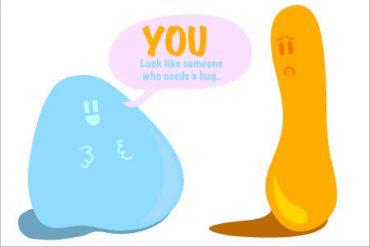I remember when I was younger and I asked my father “what does this word mean?” he would always say: “There’s a dictionary on the bookshelf, go look for it.”
Never in my life has my father given me the definition of something. Now, when I hear anything I do not know, whether it was a word or a piece of information, I find myself using Google right away to know what it is.
I often wonder why bother looking for every single detail I come across that I don’t know. I also wonder why I ever chose a major that requires me to read and write, then read some more and write. And then I realized: I’m hungry for knowledge.
Research is the systematic investigation into existing or new knowledge (The Oxford English Dictionary). One’s research either confirms information, or comes out with a new piece of information. No matter how small or large a research is, it will always add something to the world; if not the world, then at least the individual who conducted the research.
The downside of being an expert researcher is that they don’t get paid so well and they don’t always get the funding to conduct research. But there are people out there who don’t really care about that. Their passion for research and the end result makes them forget all the hardship they went through.
So why? Why go through all that? I guess that it’s a craving even they cannot shut. Exactly like the hunger I get when I face something I don’t know. Research is not limited to science; we can research anything we want. I personally think that research is a way to answer the “what, why, when, who, or how”.
There are two ways to conduct research:
- Primary research: Using the original documents & data on the topic.
- Secondary research: Using secondary sources such as Wikipedia.
As for the research design, researchers choose either:
- Qualitative research: Where a broad question is asked and the data that is collected & analyzed are based on words.
- Quantitative research: Is somewhat like the quantitative but works with number-data, & depends on random sampling.
As I mentioned before, the beauty of research is that someone always benefits from it. The least thing that comes out of it: the researcher gains new information. So why not research? Why not learn something new? We don’t really have to create a huge research that will change the world, or stress ourselves over wanting to publish the research and sharing it with our own society; we could simply do it for ourselves.




